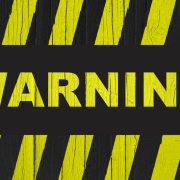The Different Types of Loans You Can Use in a Self-Directed IRA
The bond market is the only place investors can find strong, consistent returns within a retirement account, right? Wrong. Bonds are essentially a form of lending, and although many retirement investors are already familiar with this style of investing, it does not mean that’s all you can do within an IRA. Using a Self-Directed IRA, you can access a different type of lending—such as private notes and private lending—that goes beyond the bond market and helps you provide yourself with a steady stream of income.
But what are the types of loans you can and cannot use within a retirement account? Here’s what you will need to know:
Types of Loans and Investing Options in a Self-Directed IRA
First, let’s explore the types of loans you can make when you use your Self-Directed IRA:
- Mortgages and trust deeds. If you have significant funds available within your Self-Directed IRA, you can make private mortgage loans. This is not the usual route for many, but it can be a powerful way to put a significant portion of retirement funds aside, especially if you have a high degree of confidence in the financial capabilities of the borrowers.
- Secured notes. Secured notes—that is, notes backed by assets—provide security for you, the lender. This can give you a great deal of confidence when you make a loan to someone using retirement funds within a Self-Directed IRA; even in the event of default, you will still be able to receive assets into the retirement account, provided that these assets are legitimate.
- Unsecured notes. Why would anyone ever want to lend to someone who needed an unsecured loan? The simplest answer is higher returns. There’s a risk/reward prospect when it comes to making private loans. Just as a stock market investor might take on riskier stocks as part of the portfolio to go for greater long-term returns, an investor might also include unsecured notes within a private loan portfolio to expand risk.
- Private business loans. Getting a business started requires a lot of capital. For aspiring business owners, getting that money requires fast access to capital. From the lender’s perspective, a private business loan in a well-placed investment can secure high-quality returns without having to commit a lot of money.
- Car notes. Purchasing a car requires a smaller loan than many of those listed here, but it can be a great way for investors to get ample returns with the money they set aside for private lending.
- Property Tax Liens and Deeds. Private tax liens can be a way to get great returns, but only with well-placed investments. The borrower can assume the tax debt on a property in this case, which can yield surprisingly strong results in terms of return on investment.
What Loans Can’t You Make with a Self-Directed IRA?
Given all of these options, it’s tempting to think you can make just about any loan you want within a Self-Directed IRA. But you will want to avoid personal loans to people you know—otherwise known as “disqualified persons”—using an IRA. This is not to say that you should always avoid these personal loans. However, it does mean that when you do make a personal loan to someone you know (such as a son or daughter), that you keep the loan funds separate from your retirement account. Otherwise, you can face stiff penalties that make the profits you get from the loan moot. There are lots of options for loans within a Self-Directed IRA, but always make sure it’s not with a disqualified person.
Interested in learning more about Self-Directed IRAs? Contact American IRA, LLC at 866-7500-IRA (472) for a free consultation. Download our free guides or visit us online at www.AmericanIRA.com.






